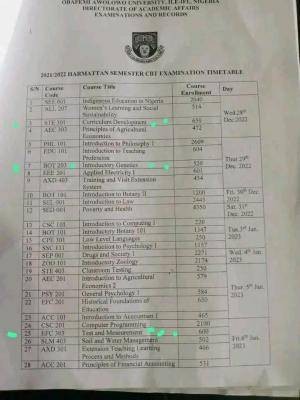
A former Dean, Faculty of Administration, Obafemi Awolowo University, Ile-Ife, Osun State, Prof. Ladipo Adamolekun, has raised the alarm over the declining interest of students in teaching profession.
He said it was worrisome that the majority of candidates admitted to faculties of education in the nation’s universities were those with poor grades in the Unified Tertiary Matriculation Examination.
He noted that the development had contributed to the declining state of quality education in the country.
Adamolekun spoke at the inaugural lecture of Oxbridge Tutorial College, in Lagos on Wednesday.
He said for products of the Nigerian educational system to be globally competitive, stakeholders must pay attention to training of teachers while incentives should be put in place to attract the best brains to the profession.
He said, “The majority of students who enrol in the faculties of education across the country are those in the bottom third or quarter of the cohorts admitted each year. In these circumstances, we have poor level teachers in our schools.
“In those days, teachers were held in very high esteem in the society, respected and trusted in communities across the country and teachers in higher institutions were acknowledged as distinguished personalities in various elite groups; that was the era of educational excellence in Nigeria.
“The woes bedevilling the profession started in the 1980s when anti-intellectual attitude of military rulers who were in the helms of affairs for over 30 years led to the decline in the amount of respect and esteem accorded to teachers.”
He noted that apart from continous teacher education as well as provision of necessary incentives to them, the government should also hold teachers accountable for students’ educational achievements.
He said it was high time teachers started answering for failures of their students in terminal examinations such as the Senior Secondary School Examinations of West African Examinations Council and the National Examinations Council.
He added, “The objective measure of student achievement should be the preponderant criterion in teacher evaluation. This is the growing trend in the United States and other western world where teachers are held accountable for students’ performance.
“This should involve the adoption and appropriate adaptation of this emerging trend for state governments that want to improve the quality of education,” he added.
Guest Lecturer, Dr. Doyin Salami of the Pan Atlantic University, Lagos, said for the country to be one of the 20 biggest economies in 2020, there was a need for a steady and sustained progression towards defined objectives, especially in education sector.


